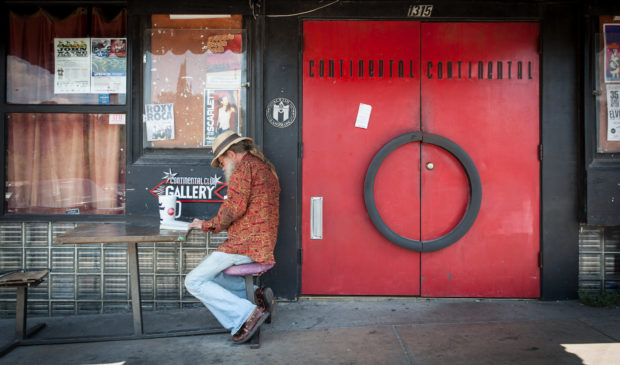Council approves partial start for SAVES
Friday, October 16, 2020 by
Ryan Thornton After directing the city to create the Save Austin’s Vital Economic Sectors (SAVES) fund last month, City Council approved initial program guidelines Thursday that will provide some immediate financial relief for local music venues, restaurants, bars and child care centers. Over the coming weeks, the city will work to develop “enhanced guidelines” intended to provide more meaningful long-term financial support for legacy businesses and music venues.
“I’m concerned about giving substantial short-term (support) … because I think it can also be counterproductive to the long-term goal of providing sustainability,” explained Mayor Steve Adler. “If we were to give, say, a tenant four months’ rent … to tide them over for the next four months, they may well have lost a lot of the bargaining leverage that they would otherwise have to actually negotiate a longer-term lease or a lease with better terms.”
Rather than approving the full $15 million fund for financial awards, the city created a separate $2.3 million business preservation fund out of available revenues from the Austin Transportation Department. Of those dollars, Council allocated $1.5 million for immediate relief for urgent expenses as the city develops long-term strategies. Council also approved guidelines for the $5 million child care provider relief grant.
The city had previously presented a program dividing $15 million in cash grants among selected recipients of a music venue preservation fund, legacy business relief grant and child care center grant. Council’s new direction calls for a different strategy, which Council Member Alison Alter called a “choose-your-own-adventure approach.”
As an example of the new strategy, Adler said an eligible legacy business or venue could receive a voucher for 10-20 hours of legal or financial counseling to help applicants negotiate a new lease, file for bankruptcy, attract new investors, join a music venue conservancy, seek historic preservation funds, purchase a leased site, or explore other strategies to attain financial sustainability.
“I want them to be able to have the greatest amount of leverage that a sophisticated market participant would have if they had access to the kinds of expertise that we’re talking about,” Adler said.
The immediate financial assistance approved in the business preservation fund is to be reserved for businesses that are not stable enough in the short term to participate in the long-term assistance program. The $2.3 million business preservation fund will be created in part through dollars reallocated from Transportation’s vehicle replacement plan, the Austin Core Transportation plan and the transportation demand management program. The remaining $1.1 million is available through unprogrammed dollars in the department’s fund balance.
Council Member Kathie Tovo brought the business preservation fund proposal to Council. After weeks of back and forth with Transportation, Tovo expressed a desire to allocate a total of $3.7 million from department revenues into the fund, despite concerns from Rosie Truelove, director of the city’s housing department, that the decision could mean putting a halt to future capital improvement projects under the Great Streets Development Program.
“I want that more thoughtful, sustainable approach, but I also don’t want to lose those venues,” Tovo said. “And I know for some of them … a couple weeks, plus the additional time to get attorneys on board, could really add up to a delay that’s untenable.”
Council postponed a separate resolution that would direct the city to create a visitor information center fund from a portion of the Hotel Occupancy Tax. These dollars would also help contribute to the long-term success of local businesses by designating a select group of “iconic” venues and restaurants as tourist destinations.
Lauryn Gould, a local musician, said the program is an excellent first step to sustain local live music and cultural tourism.
“The $5 million set aside for venues and the $5 million set aside for legacy businesses in the SAVES resolution will not be nearly enough to keep our endangered industry from evaporating,” Gould said. “It will just slow the process. The seed funding proposed in (the visitor information center fund) would not just be akin to putting a Band-Aid on this deep wound, but will help businesses start to heal and become stronger over time.”
Photo made available though a Creative Commons license.
The Austin Monitor’s work is made possible by donations from the community. Though our reporting covers donors from time to time, we are careful to keep business and editorial efforts separate while maintaining transparency. A complete list of donors is available here, and our code of ethics is explained here.
You're a community leader
And we’re honored you look to us for serious, in-depth news. You know a strong community needs local and dedicated watchdog reporting. We’re here for you and that won’t change. Now will you take the powerful next step and support our nonprofit news organization?



